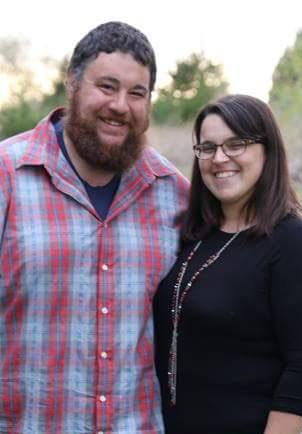
3 minute read
APA to offer web-based training tool for community journalists; Earn Your Press Pass launches in Feb.
Continued from Page 1 not designed to replace university-level curriculum. Instead, the goal is to assist rural newsrooms in upgrading the skills of budding journalists who already live in and are passionate about the communities the newspaper serves.
“We wanted just some quick-and-dirty ‘we need somebody to cover the city council’ type training,” said Joey Young, owner and co-publisher of four rural Kansas newspapers covering Sedgwick, Reno, Harvey, Marion, and McPherson counties: the Hillsboro Free Press, Harvey County Now, The Clarion and McPherson NewsLedger
Advertisement
“It is really difficult to recruit traditionallyeducated journalists to places such as western Kansas. Even where we are, it is difficult to recruit from KU or K-State.”
“It’s hard to convince a young kid that just graduated from a journalism school to move out to a little town of 900 people and work out there,” agreed Lindsey Young.
“When I worked at my hometown newspaper in (Newton, Harvey County), there were at least 30 people in the newsroom. It is now down to one,” Joey Young said of the Wichita, Kan., suburb of more than 18,000 residents.
To accomplish the task of designing and implementing a curriculum for the journalism training project, the Kansas publisher first attempted to work with local colleges and universities but was still deciding on a course of action. Joey Young eventually turned to his wife, KPV’s co-publisher, business manager and copyeditor.
“I was complaining about it one day at home, and Lindsey said, ‘I can build that course,’” said Joey Young.
Putting her experience as a former teacher to work, Lindsey Young said she worked on the curriculum for nearly a year before it was unveiled.
“It was really fun, because I was a teacher for ten years before I came on with the newspapers full-time. It is definitely scratching an itch for me by getting back in the classroom a little,” she said. “I used to teach high school journalism, and I felt most of my (students), once they got out of my class, could have handled covering a city council meeting.”
The course consists of eight lessons and includes over 30 topics. The video-driven course outlines basics like newspaper jargon, interviewing skills, editing, simple photography and other journalism basics. Lindsey Young said she wanted to make the course applicable to the small-town newsroom and not burdened with rigorous tests and classroom-type instruction.
EYPP is designed as a reference guide for anyone who wants to write for a local paper, although it can be handy for those a few years into their career as well.
“We’ve had newspapers that have said, ‘Man, I know some seasoned journalists who can really use this as a refresher too,’” she said.
The online curriculum was first launched last fall as a KPS member benefit. Since then, ten state press associations have onboarded the training course. Lindsey Young said the couple began reaching out to other state press associations late last year at the behest of KPA Executive Director Emily Bradbury

“We started it because we felt like it was something Kansas needed,” said Lindsey Young. “The more we talked with our executive director, she thought other people might want to hear about this, too. So, we just put feelers out. It has been a little surprising how enthusiastic people have been about it.”
Joey Young said feedback from press associations and newspapers where the program has been implemented has been incredible. The Texas Press Association, one of the nation’s largest newspaper trade groups with 429 paid-circulation members, added the online program to that association’s recognized Texas Center for Community Journalism.
“They were one of the first adopters on this, and easily have the most users that have signed up,” he said. “South Dakota and Wisconsin have also been early adopters and pretty fervent users.”
APA will unveil the program in early February, free of charge to member newspapers. Wimberley said the webbased program will help Arkansas publishers and editors navigate the deficient industry labor pool by providing turnkey training options for novice and early-career journalists.
“This program is a win-win situation for our members who don’t have the budget and resources to send their staff to journalism workshops and conferences,” she said.
To learn more about the program, contact Wimberley at 501-374-1500 or email ashley@arkansaspress.com
APA is excited to welcome the Little River Journal as a full member of the association.




